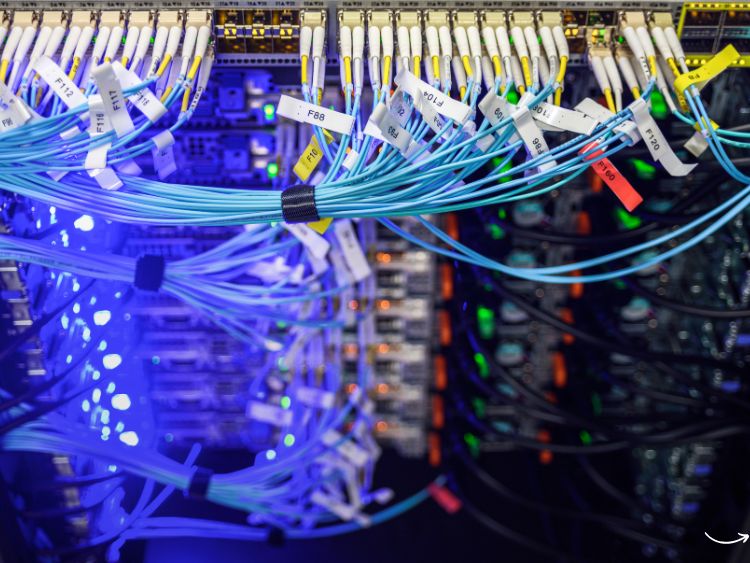In today’s digital age, understanding computer hardware is more essential than ever. Whether you’re aiming for a career in IT or simply want to enhance your tech-savviness, mastering computer hardware skills is a significant asset. This guide will walk you through the key components, skills, and knowledge you need to become proficient in computer hardware.
What Are Computer Hardware Skills?
Computer hardware skills encompass a range of abilities related to the physical components of computers. This includes understanding, diagnosing, repairing, and maintaining hardware components like CPUs, motherboards, RAM, and storage devices. These skills are critical for anyone in the IT field and beneficial for everyday tech users who want to troubleshoot and upgrade their systems.
Focus Keyword: Computer Hardware Skills
SEO Meta-Description: “Discover essential computer hardware skills in this comprehensive guide. Learn about key components, troubleshooting, and maintenance tips to enhance your tech proficiency.”
Key Components of Computer Hardware
Before diving into the skills themselves, it’s crucial to understand the main components of a computer. Here’s a quick rundown:
1. Central Processing Unit (CPU)
The CPU, often referred to as the brain of the computer, handles all instructions from software and hardware. It performs calculations and executes commands to ensure your system runs smoothly.
2. Motherboard
The motherboard is the main circuit board that connects all components of the computer. It houses the CPU, memory, and provides connectors for other peripherals.
3. Random Access Memory (RAM)
RAM is a type of volatile memory that temporarily stores data and instructions that the CPU needs. It is essential for multitasking and affects the speed at which applications run.
4. Storage Devices
These include Hard Disk Drives (HDDs) and Solid-State Drives (SSDs), which store your data permanently. SSDs are faster and more reliable than HDDs but are also more expensive.
5. Graphics Processing Unit (GPU)
The GPU is responsible for rendering images and videos. It’s crucial for tasks that require high-quality graphics, such as gaming and video editing.
6. Power Supply Unit (PSU)
The PSU converts electrical power from an outlet into a usable form for the other components. It is vital for the stability and longevity of your computer.
Essential Computer Hardware Skills
1. Assembling and Disassembling Computers
Knowing how to put together and take apart a computer is a foundational skill. This includes:
- Identifying Components: Recognize and understand the function of each component.
- Proper Handling: Use anti-static wristbands and handle components with care to avoid damage.
- Assembly Process: Follow a systematic approach to assembling components in the correct order.
- Disassembly: Learn how to safely remove and store components for repairs or upgrades.
2. Troubleshooting Hardware Issues
Effective troubleshooting involves:
- Diagnosing Problems: Use diagnostic tools and software to identify hardware issues.
- Testing Components: Test individual components, such as RAM or the power supply, to find the faulty part.
- Problem-Solving: Develop strategies to fix common issues, such as overheating, system crashes, and connectivity problems.
3. Installing and Configuring Hardware
This skill covers:
- Installing New Components: Add or replace hardware like RAM, storage drives, or GPUs.
- Driver Installation: Ensure the proper drivers are installed for hardware to function correctly.
- BIOS/UEFI Configuration: Configure settings in the BIOS/UEFI to optimize hardware performance.
4. Upgrading Hardware
Stay current with technology by:
- Evaluating Needs: Determine which components need upgrading based on performance requirements.
- Compatibility Checks: Ensure new hardware is compatible with existing components.
- Performance Enhancement: Understand how upgrades, such as adding more RAM or switching to an SSD, can improve overall performance.
5. Preventative Maintenance
Regular maintenance can extend the life of your hardware:
- Cleaning: Keep components free of dust and debris to prevent overheating.
- Monitoring: Use software to monitor system health and performance.
- Updates: Regularly update firmware and drivers to maintain compatibility and security.
FAQs about Computer Hardware Skills
Q1: What basic tools do I need for computer hardware tasks? A: You’ll need a set of screwdrivers, anti-static wristbands, thermal paste, and a multimeter for most hardware tasks.
Q2: How often should I perform maintenance on my computer? A: It’s recommended to perform basic maintenance, like cleaning, every few months, and more thorough checks annually.
Q3: Can upgrading my GPU improve my computer’s performance? A: Yes, upgrading your GPU can significantly enhance performance, especially for gaming, video editing, and other graphic-intensive tasks.
Q4: What are some common signs of hardware failure? A: Common signs include frequent crashes, unusual noises, slow performance, and failure to boot.
Q5: How can I safely dispose of old hardware? A: Take old hardware to e-waste recycling centers to ensure it’s disposed of responsibly.
Conclusion
Mastering computer hardware skills is not just for IT professionals. Whether you’re a casual user or a tech enthusiast, these skills can help you keep your systems running smoothly, save money on repairs, and even pave the way for a career in technology. Start with the basics, practice regularly, and stay updated with the latest advancements in hardware technology.
Authoritative Links
- https://www.howtogeek.com
- https://www.tomshardware.com
- https://www.cnet.com/topics/computers/
- https://www.techradar.com
- https://www.pcmag.com
By honing your computer hardware skills, you’ll be well-equipped to tackle any tech challenge that comes your way.
